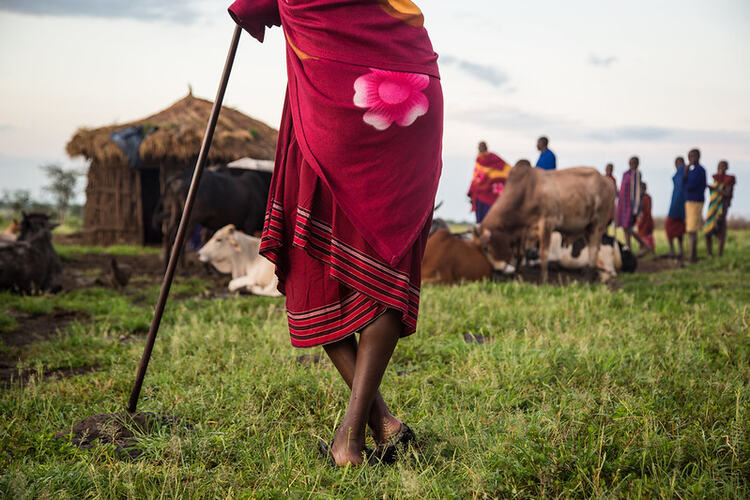
Following allegations of serious abuse and forced relocations the World Bank suspends funding for Tanzanian conservation projects
By
With herds of elephant and prides of lion marching across gold grasslands dotted with podgy baobab trees, Tanzania’s vast 12,950-sq km (5,000-sq mile) Ruaha National Park should be one of the great conservation areas of East Africa. And indeed, it was well on its way to reaching that goal with an ambitious World Bank funded plan to almost double the size of this already huge national park underway.
Launched in 2017, the US$150 million Resilient Natural Resource Management for Tourism and Growth (Regrow) project’s stated aim was to improve management of natural resources and tourism assets in priority areas of Tanzania – including Ruaha National Park. But, the project has allegedly paved the way for widespread human rights abuses against communities living near the park.
A report published in September 2023 by the Oakland Institute, an independent policy think tank that works to increase public participation and promote fair debate on critical social, economic, and environmental issues in both national and international forums, claimed that through the use of Regrow money, the Tanzanian government planned to evict more than 21,000 people from five separate villages in order to expand the boundaries of the park, and that wildlife rangers were using violence and widespread cattle seizures in an effort to force people off their land. The report also said that its research team had interviewed villagers who claimed to have been raped by rangers and noted allegations of murder by rangers.
The report revealed that the Tanzanian government was violating the World Bank’s safeguards and procedures by planning evictions without a formal resettlement plan and due process for consultation and compensation.
Now, after months of pressure from the Oakland Institute and other organisations, the World Bank, who have already invested US$100 million on the project, has suspended funding for the project until further investigations have been completed.
‘The long overdue decision of the World Bank to suspend this dangerous project is a crucial step towards accountability and justice. It sends a resounding message to the Tanzanian government that there are consequences for its rampant rights abuses taking place across the country to boost tourism. The days of impunity are finally coming to an end,’ said Anuradha Mittal, Executive Director of the Oakland Institute. ‘The government’s plan to expand the park cannot go forward against the will of local communities, who will lose everything from such an expansion. In addition to preventing forced evictions, the Bank must focus on how to remedy the harms caused to the villagers who have lost loved ones to ranger violence or had their lives devastated by livelihood restrictions. Comprehensive reparations for all victims of this project are urgently required,’ concluded Mittal.
This is not the first time wildlife conservation has come under criticism in Tanzania. In the remote Loliondo region, which borders the Serengeti National Park and the Ngorongoro Conservation Area in the north of Tanzania, the government have been trying to forcefully evict around 70,000 Maasai pastoralists in order to make way for a private hunting reserve owned by a company from the UAE. Protests here have frequently turned violent with Tanzanian authorities allegedly using live rounds to clear protesting villagers.
The Oakland Institute also claims that on January 14 2024, Tanzania National Parks Authority (TANAPA) rangers stormed a village outside of Tarangire National Park, shot several Maasai villagers, arrested eight, and seized over 800 cattle. Just days later, On January 18, the Tanzanian government announced a new plan to forcibly remove 100,000 Maasai pastoralists from the Ngorongoro Conservation Area (NCA).
Related articles:




